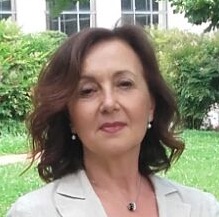Studiare
In questa sezione è possibile reperire le informazioni riguardanti l'organizzazione pratica del corso, lo svolgimento delle attività didattiche, le opportunità formative e i contatti utili durante tutto il percorso di studi, fino al conseguimento del titolo finale.
Calendario accademico
Il calendario accademico riporta le scadenze, gli adempimenti e i periodi rilevanti per la componente studentesca, personale docente e personale dell'Università. Sono inoltre indicate le festività e le chiusure ufficiali dell'Ateneo.
L’anno accademico inizia il 1° ottobre e termina il 30 settembre dell'anno successivo.
Calendario didattico
Il calendario didattico indica i periodi di svolgimento delle attività formative, di sessioni d'esami, di laurea e di chiusura per le festività.
| Periodo | Dal | Al |
|---|---|---|
| Sem. 1A | 24-set-2018 | 10-nov-2018 |
| Sem. 1B | 19-nov-2018 | 12-gen-2019 |
| Sem. 2A | 18-feb-2019 | 30-mar-2019 |
| Sem. 2B | 8-apr-2019 | 1-giu-2019 |
| Sessione | Dal | Al |
|---|---|---|
| Sessione Invernale | 14-gen-2019 | 16-feb-2019 |
| Sessione Estiva (Gli esami sono sospesi durante la Sessione di laurea) | 3-giu-2019 | 27-lug-2019 |
| Sessione Autunnale | 26-ago-2019 | 21-set-2019 |
| Sessione | Dal | Al |
|---|---|---|
| Sessione Estiva | 8-lug-2019 | 13-lug-2019 |
| Sessione Autunnale | 4-nov-2019 | 9-nov-2019 |
| Sessione Invernale | 30-mar-2020 | 4-apr-2020 |
| Periodo | Dal | Al |
|---|---|---|
| Festa di Ognissanti | 1-nov-2018 | 1-nov-2018 |
| Festa dell’Immacolata | 8-dic-2018 | 8-dic-2018 |
| Vacanze di Natale | 22-dic-2018 | 6-gen-2019 |
| Vacanze di Pasqua | 19-apr-2019 | 23-apr-2019 |
| Festa della liberazione | 25-apr-2019 | 25-apr-2019 |
| Festa del lavoro | 1-mag-2019 | 1-mag-2019 |
| Festa del Santo Patrono - S. Zeno | 21-mag-2019 | 21-mag-2019 |
| Festa della Repubblica | 2-giu-2019 | 2-giu-2019 |
| Vacanze Estive | 12-ago-2019 | 17-ago-2019 |
Calendario esami
Gli appelli d'esame sono gestiti dalla Unità Operativa Segreteria Corsi di Studio Scienze Umane.
Per consultazione e iscrizione agli appelli d'esame visita il sistema ESSE3.
Per problemi inerenti allo smarrimento della password di accesso ai servizi on-line si prega di rivolgersi al supporto informatico della Scuola o al servizio recupero credenziali
Docenti
 claudia.annechini@univr.it
claudia.annechini@univr.it
 cristina.bertazzoni@univr.it
cristina.bertazzoni@univr.it
 luca.odini@univr.it
luca.odini@univr.it
 stefania.pontrandolfo@univr.it
stefania.pontrandolfo@univr.it

Pozzo Riccardo
 riccardo.pozzo@univr.it
riccardo.pozzo@univr.it
 +390458028053
+390458028053
 marco.ubbiali@univr.it
marco.ubbiali@univr.it
Piano Didattico
Il piano didattico è l'elenco degli insegnamenti e delle altre attività formative che devono essere sostenute nel corso della propria carriera universitaria.
Selezionare il piano didattico in base all'anno accademico di iscrizione.
1° Anno
| Insegnamenti | Crediti | TAF | SSD |
|---|
Un insegnamento a sceltaUn insegnamento a scelta2° Anno Attivato nell'A.A. 2019/2020
| Insegnamenti | Crediti | TAF | SSD |
|---|
Un insegnamento a sceltaUn insegnamento a scelta| Insegnamenti | Crediti | TAF | SSD |
|---|
Un insegnamento a sceltaUn insegnamento a scelta| Insegnamenti | Crediti | TAF | SSD |
|---|
Un insegnamento a sceltaUn insegnamento a scelta| Insegnamenti | Crediti | TAF | SSD |
|---|
Legenda | Tipo Attività Formativa (TAF)
TAF (Tipologia Attività Formativa) Tutti gli insegnamenti e le attività sono classificate in diversi tipi di attività formativa, indicati da una lettera.
Metodi di formazione interculturale (2018/2019)
Codice insegnamento
4S000569
Docente
Coordinatore
Crediti
9
Lingua di erogazione
Italiano
Settore Scientifico Disciplinare (SSD)
M-PED/01 - PEDAGOGIA GENERALE E SOCIALE
Periodo
Sem. 2A, Sem. 2B
Obiettivi formativi
1. Conoscere i concetti fondamentali che caratterizzano le competenze interculturali di un pedagogista, le loro modalità operative e i limiti della misurazione di tali competenze.
2. Comprendere il significato e il valore dei metodi di lavoro e di ricerca della pedagogia interculturale in molti e differenti contesti dell’attività educativa.
3. Applicare le competenze interculturali apprese, verificando la validità e l’efficacia soprattutto nei confronti di situazioni caratterizzate da forme di conflitto, generato da motivazioni etniche, sociali o culturali.
Programma
1. Elementi fondanti della pedagogia generale e interculturale:
- elementi costitutivi della pedagogia generale e nuove correnti pedagogiche (problematicismo, empirismo, personalismo);
- epistemologia e sviluppo della pedagogia transculturale e multiculturale;
- epistemologia e sviluppo della pedagogia interculturale.
2. Ricerche e modelli di competenza interculturale:
- riflessione critica su modelli e teorie di competenza interculturale;
- modalità operative e limiti della misurazione delle competenze interculturali;
- possibilità operative di un modello di competenze interculturali sviluppato a Verona.
3. Metodi di formazione interculturale nella pratica educativa:
- competenza interculturale a scuola, in famiglia, nelle professioni, nei media e nella società;
- gestione dei conflitti e mediazione interculturale;
- cooperative learning, problem solving, gestione di gruppi eterogenei e complessi.
METODI DIDATTICI
Gli incontri in aula prevedono l'impiego di lezioni frontali, discussioni di gruppo ed esercitazioni in piccoli gruppi.
MODALITÀ DELL’ESAME
testi per l’esame
Per raggiungere gli obiettivi di apprendimento sopra elencati è necessario studiare cinque testi, obbligatori per tutti, frequentanti e non frequenti:
Testi per l’esame (5 in totale)
Parte generale
- PORTERA, A., Manuale di Pedagogia interculturale, Laterza, Roma, 2017 (3. edizione)
Parte monografica
- CHOEN-EMERIQUE, M., Per un approccio interculturale nelle professioni sociali e educative. Erickson, Trento, 2017.
- Portera, A., Dusi, P. (a cura di), Neoliberalismo, Educazione e Competenze interculturali. Franco Angeli, Milano, 2016.
- AA.VV., Gestione dei conflitti e mediazione interculturale, Franco Angeli, Milano 2005.
Il corso sarà supportato da specifiche esercitazioni teorico-pratiche, che costituiranno parte integrante del programma d’esame. Per l’approfondimento di tale parte pratica, sarà necessario utilizzare uno dei seguenti testi (che non dovrà essere stato impiegato per altri esami):
- *PORTERA, A., Milani M. (a cura di) Competenze interculturali e successo formativo, Ets Edizioni, Pisa, 2019.
- *PORTERA, A., BÖHM W., SECCO, L., Educabilità, educazione e Pedagogia nella società complessa. UTET, Torino, 2007.
- *Portera, A., Dusi, P. (a cura di), Neoliberalismo, Educazione e Competenze interculturali. Franco Angeli, Milano, 2016.
- AA.VV., Competenze interculturali, Angeli, Milano, 2013.
- *AA.VV., Educazione interculturale alla cittadinanza, Carocci, Roma, 2008.
- *PORTERA, A, LA MARCA, A. CATARCI, M., Pedagogia interculturale, La Scuola, Brescia, 2015.
- SANTERINI, M., Formazione Interculturale: teoria e pratica. Unicopli, Milano, 2007.
- GUIDETTI, B., Educazione e pedagogia interculturale in azienda. Angeli, Milano, 2008.
- AGOSTI A. (A CURA DI), La formazione, Franco Angeli, Milano 2006
- CORTE, M., Comunicazione e giornalismo interculturale, CEDAM, Padova, 2006.
- * MILANI, M., A scuola di competenze interculturali. Metodi e pratiche pedagogiche per l’inclusione scolastica. F. Angeli, Milano, 2017.
- * LAMBERTI S., Apprendimento cooperativo e educazione interculturale, Erickson, Trento, 2010.
- *PORTERA, A. Globalizzazione e pedagogia interculturale, Erickson, Trento, 2006.
- PORTERA, A., La pedagogia interculturale nella teoria e nella pratica, CEDAM, Padova, 2000
- NIGRIS E., (a cura di), Pedagogia e didattica interculturale, Pearson, Milano 215.
- ANDOLFI, M. (a cura di), Famiglie immigrate e psicoterapia transculturale. F. Angeli, Milano, 2004
- FAVARO, G. FUMAGALLI, M. (a cura di), capirsi diversi. Idee e pratiche di mediazione interculturale. Carocci, 2004
- GIUSTI, M., Teorie e metodi di pedagogia interculturale, Utet, Roma, 2017
- FIORUCCI M., Pinto Minerva F., Portera A. (a cura di), Gli alfabeti dell’intercultura, Edizioni Ets, Pisa, 2017.
- *PORTERA, A., ALBERTINI G., LAMBERTI S., Disabilità dello sviluppo, educazione e Cooperative Learning. Un approccio interculturale, F. Angeli, Milano, 2015.
* testo consigliato ai non frequentanti.
Modalità d'esame
Dettagli sulle modalità didattiche e valutative dell’apprendimento saranno comunicate all’inizio delle lezioni. Obiettivo dell’esame è di verificare negli studenti il raggiungimento il livello di apprendimento dei contenuti previsti dal programma e di acquisizione delle competenze previsti dagli obiettivi precedentemente indicati. L’esame consiste in una prova scritta con domande chiuse tratte da alcuni dei testi di studio e una domanda aperta. Nello stesso giorno, dopo aver ricevuto l’esito dello scritto, è possibile sostenere l’esame orale su tutti i testi di studio.
Tipologia di Attività formativa D e F
Insegnamenti non ancora inseriti
Prospettive
Avvisi degli insegnamenti e del corso di studio
Per la comunità studentesca
Se sei già iscritta/o a un corso di studio, puoi consultare tutti gli avvisi relativi al tuo corso di studi nella tua area riservata MyUnivr.
In questo portale potrai visualizzare informazioni, risorse e servizi utili che riguardano la tua carriera universitaria (libretto online, gestione della carriera Esse3, corsi e-learning, email istituzionale, modulistica di segreteria, procedure amministrative, ecc.).
Entra in MyUnivr con le tue credenziali GIA: solo così potrai ricevere notifica di tutti gli avvisi dei tuoi docenti e della tua segreteria via mail e anche tramite l'app Univr.
Tutorato per gli studenti
Tutti i docenti del Corso di Studio possono fornire una forma di tutorato volta ad orientare e assistere gli studenti lungo tutto il corso degli studi.
Le matricole, gli studenti che si approcciano al tirocinio, gli studenti in uscita e tutti gli studenti che manifestano difficoltà nel loro percorso di studi possono contattare i docenti indicati come tutor del corso di laurea magistrale in Scienze pedagogiche:
- prof.ssa Antonia De Vita (Referente);
- prof. Daniele Loro.
Nel quadro del programma di TUTORATO, il Dipartimento di Scienze Umane ha inoltre deciso di utilizzare l’esperienza di alcuni iscritti al Dottorato di Scienze Umane per offrire un supporto che sia il più vicino possibile a chi frequenta il CdS magistrale, sulla base della loro diretta esperienza.
Tali Tutor studenteschi forniranno un servizio di orientamento, sia in ingresso (vòlto a favorire un migliore inserimento nei Corsi di Studio, ovviando alle difficoltà e agli ostacoli che il passaggio dalla Triennale alla Magistrale, inevitabilmente comporta), sia in itinere, così da offrire un servizio di sostegno che sappia adeguatamente interpretare e rispondere alle esigenze di formazione e professionalizzazione di chi frequenta il CdS.
Tra i compiti e le attività previste vi sono:
- Supporto ad indagini sugli iscritti al CdS, volte a individuare potenziali criticità nel percorso, in particolare;
- Sostegno nella compilazione dei piani didattici, consulenza nella risoluzione di problemi amministrativi (reperimento informazioni sul sito web di Ateneo);
- Individuazione e suggerimento di Uffici e Responsabili competenti in relazione alle questioni segnalate, etc.;
- Aiuto per una migliore e più agile gestione del proprio iter formativo (supporto in merito all’accesso e alla fruizione della didattica on-line attraverso gli strumenti messi a disposizione dall’Ateneo);
- Accompagnamento della/o studente dalla scelta dell'ente/organizzazione alla supervisione nella pianificazione e nello svolgimento dell'attività di Tirocinio curricolare;
- Orientamento delle/degli studenti (inclusa la scelta della/del relatrice/tore) in vista della prova finale di laurea;
- Svolgere attività di orientamento delle future matricole (su appuntamento via Zoom) coordinata dall’Ufficio Orientamento anche tramite incontri nei mesi di settembre e ottobre;
- Individuazione e realizzazione di possibili interventi di supporto agli studenti/esse che manifestano difficoltà nel percorso, anche online;
- Orientamento in itinere per gli studenti del primo anno.
Il Tutorato è volto ad accompagnare gli studenti nel corso degli studi, a renderli attivamente partecipi del processo formativo e a contribuire al superamento delle difficoltà individuali.
Per l'a.a. 2023-2024 (fino al 30 novembre 2024) i Tutor per il CdS magistrale in Scienze pedagogiche sono:
Federica Mascia
Per esigenze particolari prendere appuntamento con il tutor tramite mail istituzionale.
Prova Finale
La discussione dell’elaborato finale avviene alla presenza di una Commissione, nominata dal Presidente del Collegio Didattico all’inizio di ogni sessione di laurea e composta da docenti del medesimo Collegio. Il Presidente della commissione è il professore di ruolo di più alto grado accademico.
Possono far parte della Commissione, in soprannumero e limitatamente alla discussione degli elaborati di cui sono correlatori, anche docenti ed esperti esterni.
Il conferimento del titolo di “dottore magistrale” avviene nella seduta plenaria della Commissione, composta da non meno di cinque docenti, che procede all’attribuzione del punteggio finale.
La Commissione di laurea dispone di centodieci punti; il voto minimo per il superamento della prova finale è di 66/110. Di norma la commissione può attribuire fino ad un massimo di 8 punti per l’elaborato finale.
Per la determinazione del voto di laurea la media dei voti d’esame è calcolata tenendo conto di tutte le prove, in qualsiasi ambito del piano di studio individuale siano inserite, che diano luogo a un voto espresso in trentesimi. Tale media è ponderata in base al numero di CFU corrispondenti a ciascuna prova. A tale media sono aggiunti fino ad un massimo di 4 punti, distribuiti nel seguente modo:
- 0,5 per ogni lode fino ad un massimo di tre punti;
- 2 punti: in rispetto, e ampliamento, di quanto previsto dal Regolamento di Ateneo per la mobilità studentesca internazionale, allo scopo di favorire la partecipazione alla mobilità internazionale (vedi art. 5 comma 4° del Regolamento di Ateneo e art. 12 del Regolamento di Dipartimento sulla Mobilità internazionale), a tutte le studentesse e a tutti gli studenti che nel corso del ciclo di studi abbiano acquisito il riconoscimento in carriera di almeno 12 CFU conseguiti in mobilità internazionale verranno attribuiti n. 2 (due) punti aggiuntivi da computarsi ai fini della determinazione del punteggio finale di laurea;
- 1 punto per la conclusione degli studi nel periodo previsto.
Al candidato che abbia ottenuto il massimo dei voti e che presenti un lavoro meritevole, può essere conferita, all'unanimità, la menzione della lode.
Lo svolgimento della prova finale è pubblico e pubblico è l'atto della proclamazione del risultato finale.
Il calendario delle sessioni di laurea e il numero delle prove finali per il conseguimento della laurea magistrale vengono deliberati dal Consiglio di Dipartimento di riferimento e, per quanto di competenza, dal Consiglio del Collegio Didattico. Il calendario deve prevedere almeno tre sessioni di laurea, distribuite nel corso dell’anno accademico.
Documenti
| Titolo | Info File |
|---|---|
|
|
pdf, it, 109 KB, 12/07/24 |
|
|
pdf, it, 112 KB, 14/05/24 |
Elenco delle proposte di tesi
| Proposte di tesi | Area di ricerca |
|---|---|
| Psicoanalisi | Psychology - Psychology, Psychoanalysis |
Gestione carriere
Esercitazioni Linguistiche CLA
Guide operative per lo studente
In questa pagina lo studente potrà trovare delle guide operative, utili al completamento del proprio percorso universitario, che vanno ad integrare quanto già indicato nei Regolamenti didattici del CdS.
1- Qui si possono reperire indicazioni in merito ai riconoscimenti di carriera, ai crediti a libera scelta per lo studente e alle certificazioni linguistiche per gli studenti iscritti ai CdS afferenti al Dipartimento di Scienze Umane a partire dalla coorte 2022 (le indicazioni contenute nella Guida entrano in vigore dal 29 marzo 2023 e sono retroattive solo se a favore dello studente);
2 - Qui si possono reperire indicazioni in merito ai riconoscimenti di carriera, ai crediti a libera scelta per lo studente e alle certificazioni linguistiche per gli studenti iscritti ai CdS afferenti al Dipartimento di Scienze Umane a partire dalla coorte 2014 (le indicazioni contenute nella Guida entrano in vigore dal 29 aprile 2020 e sono retroattive solo se a favore dello studente);
3 - Qui si possono reperire indicazioni in merito al conseguimento dei crediti a libera scelta (Crediti D e F) per gli studenti iscritti ai i CdS afferenti al Dipartimento di Scienze Umane fino alla coorte 2013 (le indicazioni contenute nella Guida entrano in vigore dal 23 febbraio 2011 e sono retroattive solo se a favore dello studente).
Documenti
| Titolo | Info File |
|---|---|
|
|
pdf, it, 325 KB, 16/07/24 |
|
|
pdf, it, 212 KB, 02/05/23 |
|
|
pdf, it, 131 KB, 02/05/23 |
Stage e Tirocini
Per le altre attività formative (crediti F) sono previsti 9 cfu (pari a 225 ore) da acquisire solamente attraverso l’attività di tirocinio obbligatoria, a sua volta suddivisa in:
- tirocinio indiretto (1 cfu: 25 ore di frequenza obbligatoria in università per il 75%) in preparazione dell’attività formativa sul campo;
- tirocinio diretto (8 cfu), da svolgersi presso enti convenzionati.
L’ordinamento didattico della LM in Scienze pedagogiche prevede che il tirocinio indiretto a frequenza obbligatoria si svolga in università per il 75% nel secondo anno (1 CFU: 25 ore).
Il tirocinio indiretto consiste in un accompagnamento iniziale delle/degli studenti da parte dei tutor attraverso un percorso di formazione della durata di 25 ore.
La finalità di questo percorso è quella di preparare le/gli studenti alla particolare forma di apprendimento costituita dal tirocinio, dotandoli di conoscenze e strumenti adeguati a osservare, comprendere e rielaborare criticamente l’esperienza di tirocinio nei servizi educativi e ad affrontare il tirocinio negli enti con metodo e consapevolezza.
Il percorso, da attuare in gruppi da 20-25 persone sotto la supervisione di un tutor proveniente dal mondo professionale di educatori e pedagogisti, risponde alle esigenze costantemente espresse sia dalle/dagli studenti stessi sia dalle parti sociali che dai referenti degli enti convenzionati.
Nuove Linee Guida per il tirocinio di Scienze pedagogiche.
- Tutte le informazioni in merito agli stage per futuri studenti sono disponibili alla pagina Stage e tirocini.
- Tutte le informazioni in merito agli stage per studenti iscritti sono pubblicate in MyUnivr - come fare per - stage e tirocini.
- Tutte le informazioni in merito agli stage per le aziende sono disponili alla pagina Stage e tirocini per azienze.
Area riservata studenti
Modalità e sedi di frequenza
La frequenza non è obbligatoria.
Maggiori dettagli in merito all'obbligo di frequenza vengono riportati nel Regolamento del corso di studio disponibile alla voce Regolamenti nel menu Il Corso. Anche se il regolamento non prevede un obbligo specifico, verifica le indicazioni previste dal singolo docente per ciascun insegnamento o per eventuali laboratori e/o tirocinio.
È consentita l'iscrizione a tempo parziale. Per saperne di più consulta la pagina Possibilità di iscrizione Part time.
Le sedi di svolgimento delle lezioni e degli esami sono le seguenti
- Polo Zanotto (vicino si trova il Palazzo di Lettere)
- Palazzo ex Economia
- Polo Santa Marta
- Istituto ex Orsoline
- Palazzo Zorzi (Lungadige Porta Vittoria, 17 - 37129 Verona)
- Chiostro Santa Maria delle Vittorie, Lungadige Porta Vittoria, 41

















